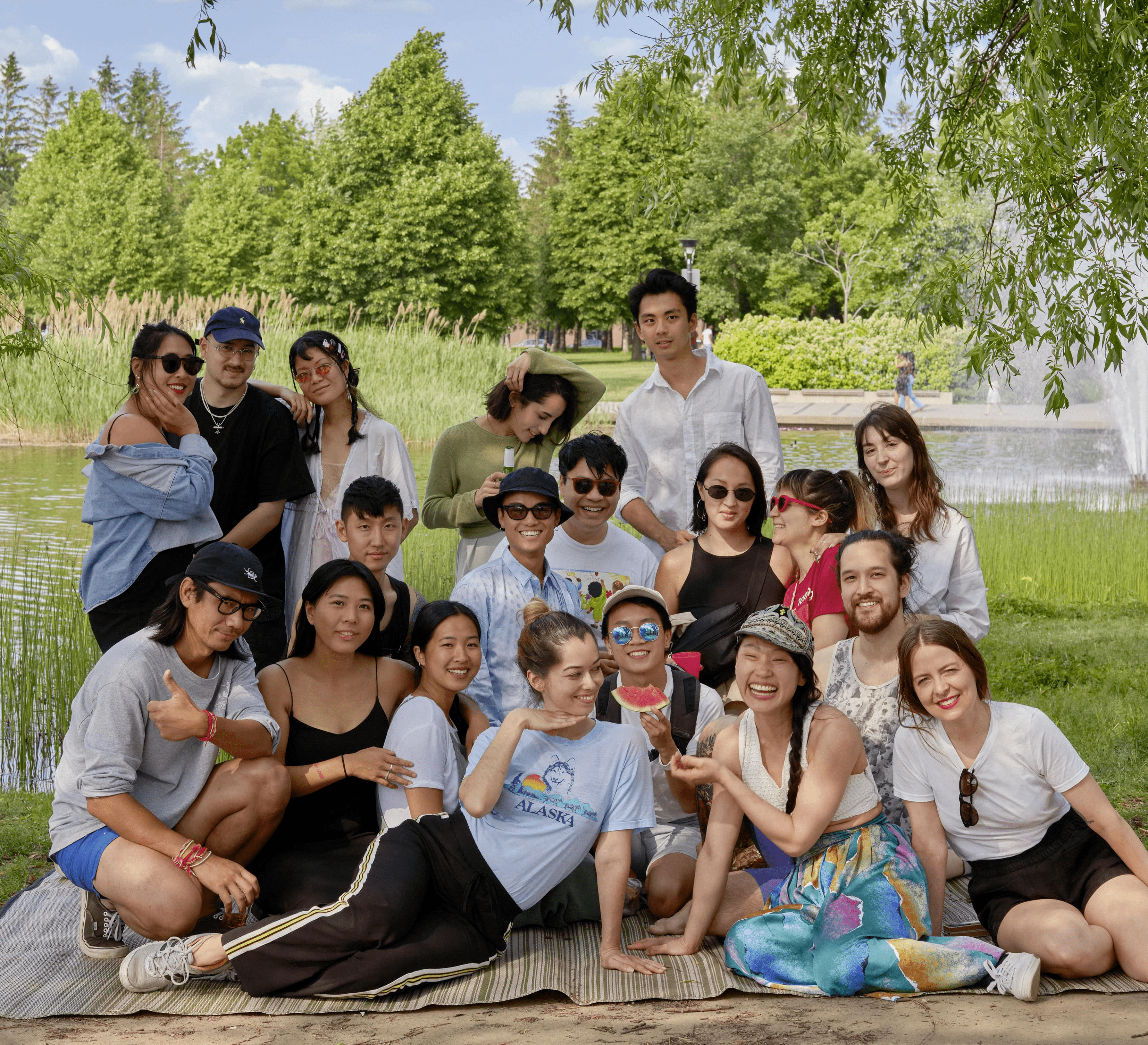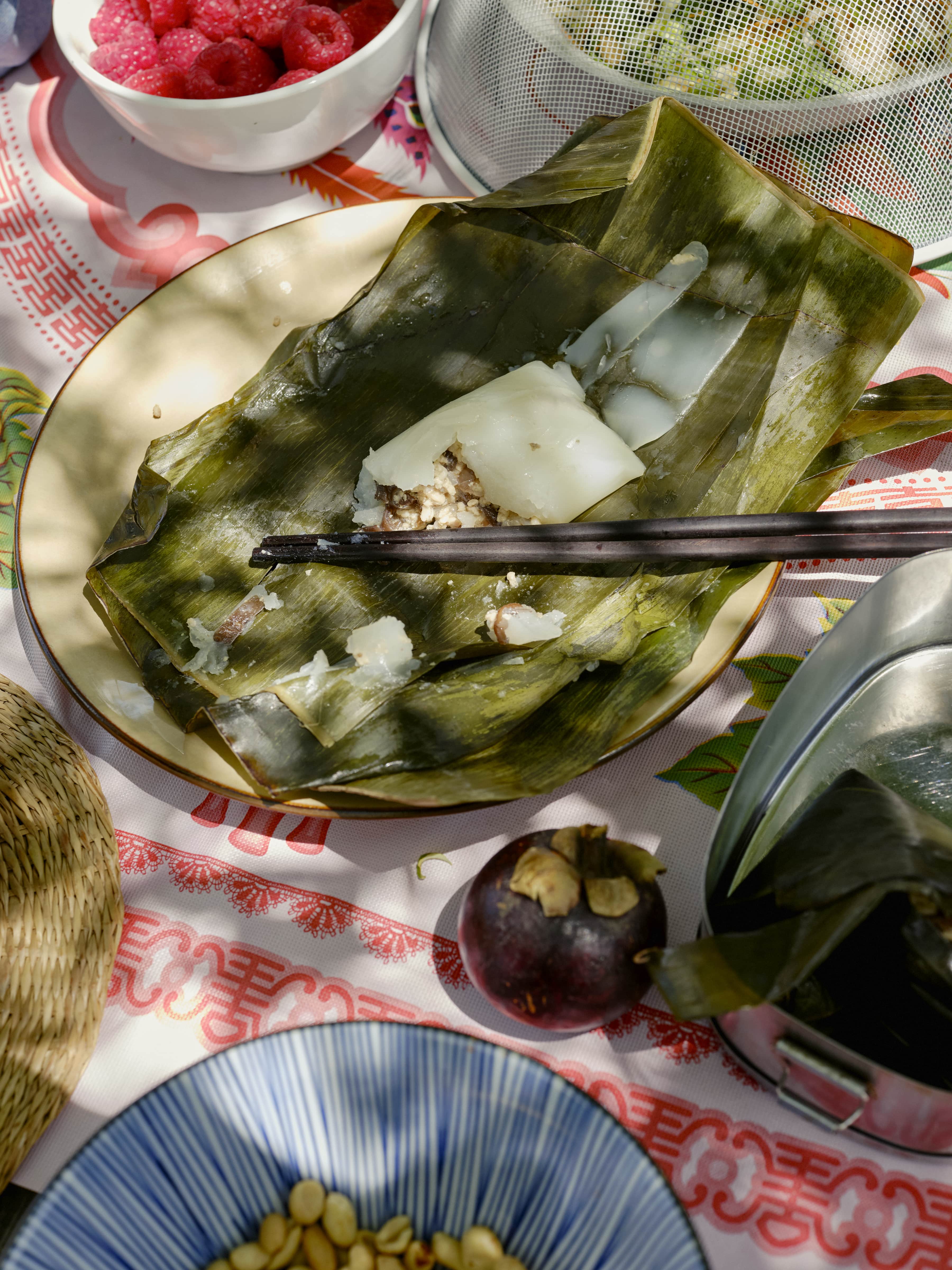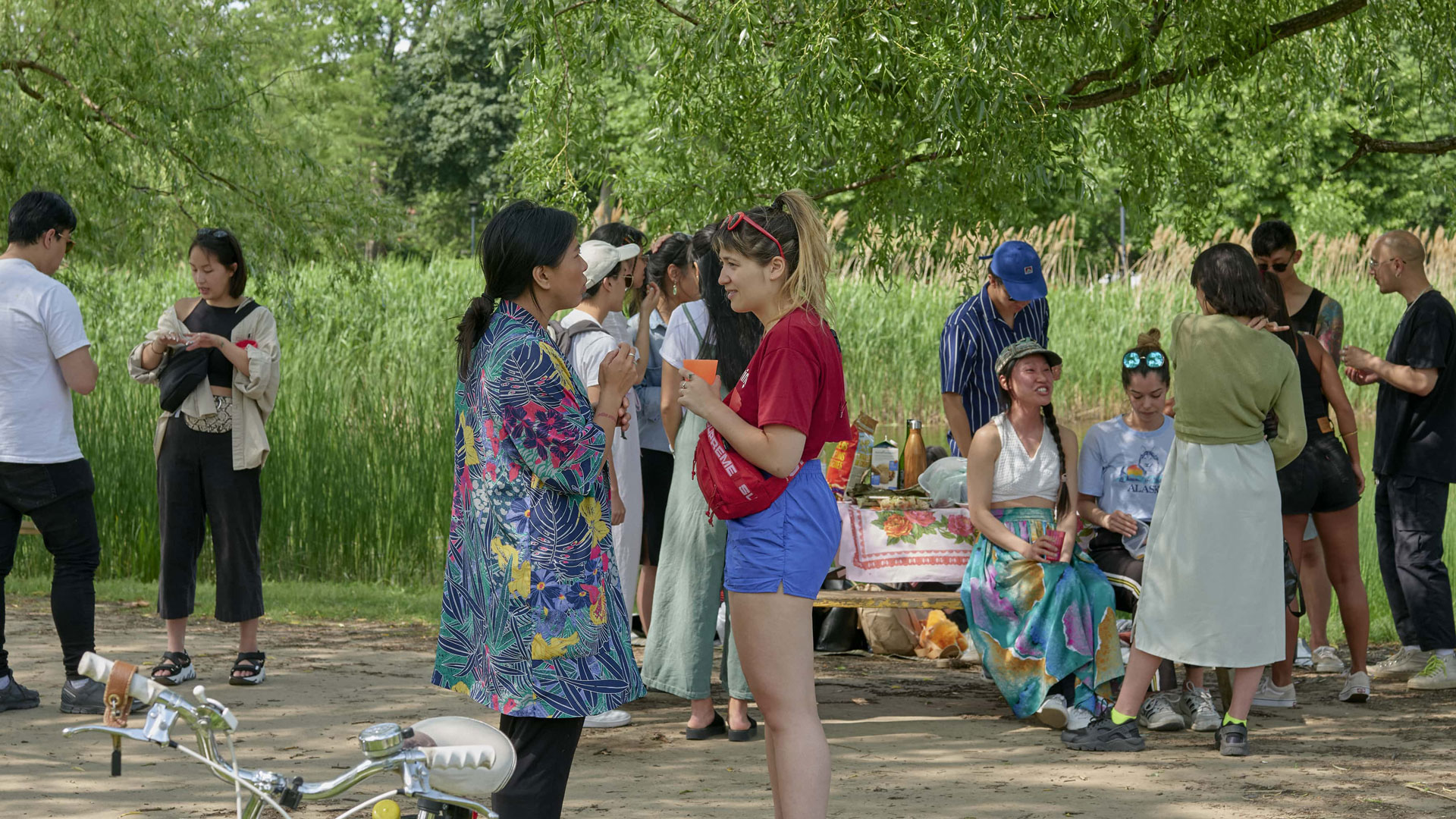Spotlight on
THE
ASIANCY
August 5th, 2019
 Interview by Viet Tran and Minh Thao Nguyen
Interview by Viet Tran and Minh Thao NguyenPhoto by Richmond Lam
A little over a year ago, a small group of Asian creatives decided to create a Facebook group that would make it easier for them to organize social activities and to connect over food. What started off as a joke eventually materialized into what they now call The Asiancy, a private Facebook social group composed of over 100 members. Although the name of the group initially evoked ideas of exclusivity, the conditions for membership were quite lighthearted: mainly, a willingness to participate in social group activities. But to find out more about what motivated them to create this collective, Minh Thao and I got in touch with one of the collective’s founders, the Montreal-based portrait and lifestyle photographer Richmond Lam whose work has been featured in Frank & Oak and Lacoste campaigns. The first time I met him, he reminded me of a younger and hipper version of my father. He insisted on paying for our meals and exuded an unselfish kindness. We agreed that the best way to conduct an interview for this purpose was to hold a group meeting with some other members of the Asiancy. It was an easy decision to meet where many Asian friends and families gather to catch up over traditional Cantonese tapas – Chinatown’s Maison Kam Fung.

If you already went to a dim sum parlour, you know that the table norms are completely different from your standard restaurant. We gathered around the table amidst a cacophony of pushcarts threading between tables, the clanging of countless dishes, and waitresses yelling the names of the Cantonese tapas we all love. Everyone knew the rules. Introductions were kept short and we went straight to business. First, we ate. Love for the food and its rituals could be felt immediately. And at our dining table, it didn’t really matter where you came from. You automatically felt part of the dim sum ceremony. There was an immediate sense of familiarity, even though we had just met.
We eventually moved to Richmond’s work studio for the actual interview. Minh Thao and I got to know more about the other members as they talked about their relationship with food. Richmond stood out as the reputable senior who others naturally called “sifu”, the word for “master” in Cantonese. Danita Ita was the knowledgeable queer mother figure in the room. Thaila Kampo, whose illustrations are featured in the last Yatai Food Festival posters, struck me as the contemplative older sibling who stood in contrast with the group’s youngest member, Dona N, a fiery spoken word artist. We couldn’t help but notice the unspoken respect for the wisdom of older members—something we see less of nowadays.
As each member expressed what the group meant to them, it became clear that the Asiancy’s purpose was less about asserting group distinctiveness, and more about creating a community in which like-minded individuals could connect over a shared understanding of cultural references, inside jokes and, of course, appreciation for Asian cuisine. As they stressed how important the concept of congregating around a meal was, I couldn’t help but think that for a lot of Asian families, the act of offering food can be the equivalent of saying “I love you”. And for many, meeting over food becomes the alternative to meeting over drinks when trying to avoid the embarrassment of the Asian flush.
"AND FOOD ALWAYS
BRINGS US TOGETHER,
EVEN AS DYSFUNCTIONAL
AND CRAZY AS YOUR
FAMILY, YOU STILL
HAVE FOOD MEMORIES.”
— DANITA
The members expressed how necessary it felt to reach out and connect with other Asian creatives, partly because they did not see many people of similar, or of their own, ethnicity represented in their workplaces. For many of them, it was also about recreating home away from home. Richmond’s family, for instance, reamained in Hong Kong.
We live in a time where the promotion of hyperindividualism makes it harder to commit to relationships. Meanwhile, the internet has multiplied our connections to the detriment of their quality. There was certainly something noble about the group’s humble mission of strengthening the ties within their community. This was not a group that was motivated by personal branding; genuine connection was way more important than pushing any specific agenda. There did, however, appear to be some deep concern regarding the disappearance of Montreal’s beloved Chinatown. Danita pointed out how the recent arrival of a music school in the cultural center, as well as the city’s plans to install a self-cleaning toilet in Sun Yat-Sen park, were part of a move toward gentrification that had not gone unnoticed by the community. In response, Richmond reflected on how the Asiancy had gathered enough skill to revitalize the current state of Chinatown, all the while promoting cultural mixing. “Mindful modernization” did seem warranted, I thought to myself.
We live in a time where the promotion of hyperindividualism makes it harder to commit to relationships. Meanwhile, the internet has multiplied our connections to the detriment of their quality. There was certainly something noble about the group’s humble mission of strengthening the ties within their community. This was not a group that was motivated by personal branding; genuine connection was way more important than pushing any specific agenda. There did, however, appear to be some deep concern regarding the disappearance of Montreal’s beloved Chinatown. Danita pointed out how the recent arrival of a music school in the cultural center, as well as the city’s plans to install a self-cleaning toilet in Sun Yat-Sen park, were part of a move toward gentrification that had not gone unnoticed by the community. In response, Richmond reflected on how the Asiancy had gathered enough skill to revitalize the current state of Chinatown, all the while promoting cultural mixing. “Mindful modernization” did seem warranted, I thought to myself.

We wanted to know their thoughts on letting their Asian heritage bleed into their creative work. The feelings were mixed. The older members didn’t want their work to be viewed as “too Asian”. Avoiding coming off as a foreigner and fitting in had been important for Richmond, who wanted to tap into the mainstream market with his contracts. His evocative work, marked with its own distinctive quirks, has a universal charm that is relatable to almost everybody. On the other hand, Dona expressed enthusiasm about showcasing her Vietnamese heritage in her spoken word performances. For her, “Everything I say even if it's not directly talking about my story, it is for sure Asian. Because people see me as Asian. And maybe I'm writing a poem about trees or about xyz but they’re going to see that it's an Asian person doing it, and that will inform the context. And that can never be changed because that’s real.” Meanwhile, Thaila opened up about his ongoing process of Cambodian identity exploration, recounting how a recent trip to Cambodia opened his eyes to the roots of the person he is today. In the end, it didn’t matter how one chose to include–or not include–their Asian heritage into their work. What mattered most was the depth of meaning associated with each artist’s intent. And, of course, what better way to get to know an artist’s purpose than to go out for food with them, Danita was quick to remind us.
Our conversation with the Asiancy turned out to be much more about loving and kindness than it was about exclusivity or organized action. For many people, finding their chosen family means creating a support network. For others, it means reconnecting with parts of themselves that they felt were judged or rejected by others. The whole day reminded us of a family outing with extended family members: you didn’t always know exactly how people knew each other, but you simply understood that they were part of one bigger picture. That day, we felt unconditionally welcomed.
Our conversation with the Asiancy turned out to be much more about loving and kindness than it was about exclusivity or organized action. For many people, finding their chosen family means creating a support network. For others, it means reconnecting with parts of themselves that they felt were judged or rejected by others. The whole day reminded us of a family outing with extended family members: you didn’t always know exactly how people knew each other, but you simply understood that they were part of one bigger picture. That day, we felt unconditionally welcomed.
ABOUT THE AUTHOR
Richmond Lam is a photographer living in Montreal, Canada. Born in Hong Kong and with years spent in London, England, Lam is most well known for his observation-led and authentic approach to his portraiture work. He loves his yuenyeung, the Cantonese beverage of coffee and tea mix.
Richmond Lam is a photographer living in Montreal, Canada. Born in Hong Kong and with years spent in London, England, Lam is most well known for his observation-led and authentic approach to his portraiture work. He loves his yuenyeung, the Cantonese beverage of coffee and tea mix.








